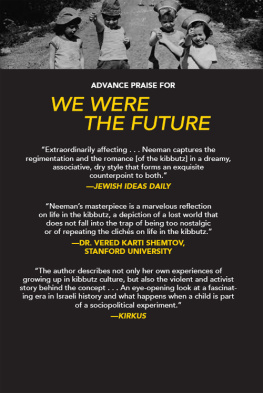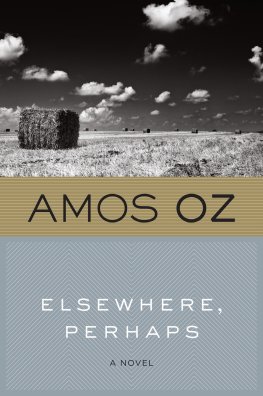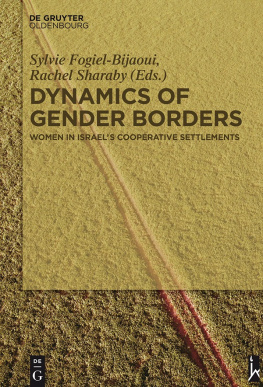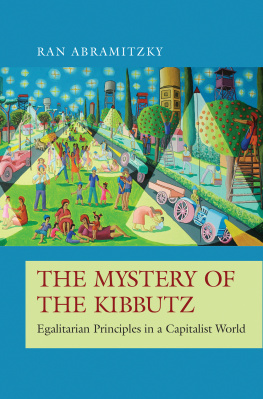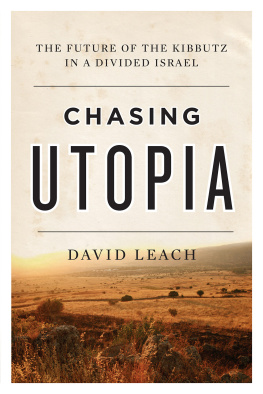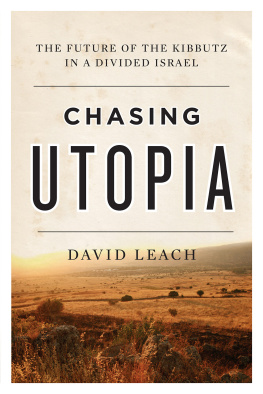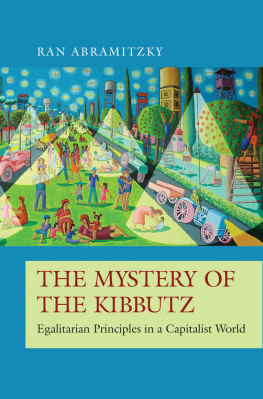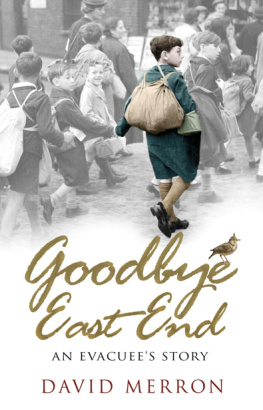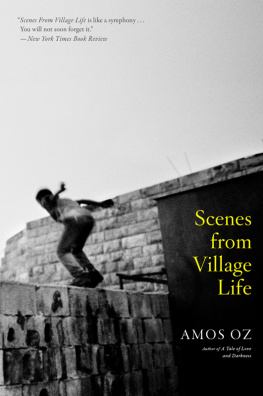First published in hardcover in the United States and the United Kingdom in 2016
by Overlook Duckworth, Peter Mayer Publishers, Inc.
NEW YORK
141 Wooster Street
New York, NY 10012
www.overlookpress.com
For bulk and special sales please contact ,
or write us at the above address.
LONDON
30 Calvin Street, London E1 6NW
E:
www.ducknet.co.uk
For bulk and special sales please contact ,
or write to us at the above address.
Copyright 2016 Yael Neeman
First published in Hebrew in 2011 as Hayinu Heatid
by Ahuzat Bait Publishing House, Tel Aviv
English language translation copyright 2014, 2016 Sondra Silverston
Poems and songs translation copyright 2016 Jessica Cohen
All rights reserved. No part of this publication may be reproduced or transmitted in any form or by any means, electronic or mechanical, including photocopy, recording, or any information storage and retrieval system now known or to be invented, without permission in writing from the publisher, except by a reviewer who wishes to quote brief passages in connection with a review written for inclusion in a magazine, newspaper, or broadcast.
ISBN 978-1-4683-1386-4
WE WERE
THE FUTURE
A MEMOIR OF THE KIBBUTZ
YAEL NEEMAN
TRANSLATED FROM THE HEBREW BY SONDRA SILVERSTON
With 33 B&W Images
THE KIBBUTZ MOVEMENT is one of the most fascinating phenomena of modern history and one of Zionisms greatest stories. Several hundred communities attempted to live the ideas of equality, freedom, and social justice by giving up private property, individualism, and the bourgeois family unit to create an Israeli utopia following the Holocaustthe only example in world history of entire communities voluntarily attempting to live in total equality. However, for the children raised in these communities, the kibbutz was an institution collapsing under the weight of an ideology that marginalized its offspring to make a political statement.
In this spare and lucid memoir, Yael Neeman, born in 1960 at the height of the kibbutz movement, skillfully captures the defining memories of her childhood and adolescence, which were shared by hundreds of thousands of Israeli children in the kibbutz. Using the collective narrator we, Neeman recounts the experiences of the children of the kibbutz movement, as well as the sociopolitical circumstances within which the communities functioned. We Were the Future is more than a compelling personal account of growing up in the kibbutz movement; it is an unstintingly honest examination of the price of equality and a new lens through which to see the history of Israel.
We were always telling ourselves our story.
Compulsively. Out loud. All the time. Sometimes we got tired even before we began, but we still told it for hours. We listened to each other intently. Because every time we told the story we learned new details. Even years later, when we were no longer there.
For example, we hadnt known that some of the kids from the Pine group, who were five years older than we were, worked with the cowboys. And that they lived in an enclave of Hungarian rural life within our kibbutz. We hadnt known that instead of saying good morning and goodnight, they said lofes (a horses prick). We hadnt known that Itai, one of the Pine group, freely rode a horse around our hills when he was only six years old.
The stories were told only orally, contrary to all written rules. They rose from the lawn sprinklers that surrounded the dining room, from the scorched remains of our Crusader fortress, from the cracks of the beautiful, narrow stone sidewalks. We told our stories with shining eyes. We said, Its unbelievable that they used to slaughter the cows on the ramp, right in front of us, that they used to decapitate the chickens like it was nothing at all, but we spoke as if those were the best years of our lives.
And they really were the best years of our lives, dipped in gold, precisely because we lived in below-zero temperatures in the blazing heat of an eternal sun. We greeted each new day with eagerness and curiosity. We were wide awake in the morning and wide awake at night. We skipped and ran from place to place, our hands sticky with pine tree resin and fig milk. We were so close to each other, all day and all night. Yet we knew nothing about ourselves.
We always told our story, even then, in the childrens house on nights when the full moon glowed orange in the sky. Even then, day and night, so we could sleep, so we wouldnt sleep, wed sit in the corridor at the doors to our rooms or on our beds and exaggerate to death the stories of our city vacations with our biological families. (We traveled with our mothers, fathers, sisters and brothers. For a week, we were a city family, dressed in the fancy travel clothes that were handed down from one child to another for traveling to the city.) When we came back, each one separately, from the kibbutz apartment on Sheinkin Street in Tel Aviv, we told each other about the same Medrano Circus we all went to. Except that the night we were at the circus with our biological family was different from the other nightsthat night, the lions escaped from their cage, the tightrope walker fell off the ropethats what we said. We told each other stories that were totally unrelated to reality.
Sometimes, after wed left the kibbutz, we tried to tell our story to city people. We werent able to get it across, neither the plot nor the tone. Our voices grated like the off-key recorder playing of our childhood, too high or too low. We gave up in the middle. The words fell, hollow, between us and the city people the way the stitches fell from our mothers knitting needles as they sat silently beside their talking husbands during the Saturday night kibbutz meetings.
We spoke in the plural. Thats how we were born, thats how we grew up, forever. Our horizons were strange, bent.
From the moment we were released from the hospital, they never tried to separate us. On the contrary, they joined us, glued us, welded us together.

The Narcissus children in the nursery; Yael is pictured first from the left.
But that being welded together wasnt the main thing, even if people who talk about their childhood on the kibbutz sometimes think it is. It was merely a byproduct of the experiment with socialism. (The decision regarding communal sleeping arrangements was taken in 1918 and applied to all the kibbutzim, except for some of the older onesDegania Aleph, Degania Bet and Ein Harodwho opposed it. They were exempt. Degania was there first, even before the system and the regulations.)
Their intention wasnt to weld, but just the opposite, to separate; to separate the children from the oppressive weight of their parents, who would pamper them and impose their wills on them with mothers milk and fathers ambitions. To separate and protect the children from the bourgeois nature of the family. We will change henceforth the old tradition, as the Internationale proclaimed, and a different, more just and egalitarian world would rise, like a phoenix, from its ashes. That was their declared intention and hopethat the new child would grow into a new kind of person. The longing of some of the kibbutz children for the family they never had was the longing for an idea we had no inkling of, like, for instance, the longing of the Jews in the Diaspora for Jerusalem.
I was in the second grade when I saw an adult wearing pajamas for the first time. It was my father, who had fallen asleep during the afternoon shift. We went to our parents rooms every day from 5:30 to 7:20 in the evening, a total of one hour and fifty minutes (until the seventh grade, when they sent us away to an educational institution in Evron). At 5:30 that day I went into their room without knocking (we didnt knock on any doors, and ours were always open twenty-four hours a dayafter all, there was nothing to hide; the houses belonged to all of us, they werent a bourgeois possession to be guarded and fortified), and he was asleep in bed wearing pajamas. I ran outside, my pulse racing, and yelled that my father was dead. Hes dead. Someone saw me on the sidewalk and, concerned, went inside to check. Zvi N. is not dead, Zvi is sleeping. Thats how grown-ups look when theyre sleeping: they lie quietly on their beds, their faces to the wall, their backs to us, wearing enormous pajamas and covered with a piqu blanket.

